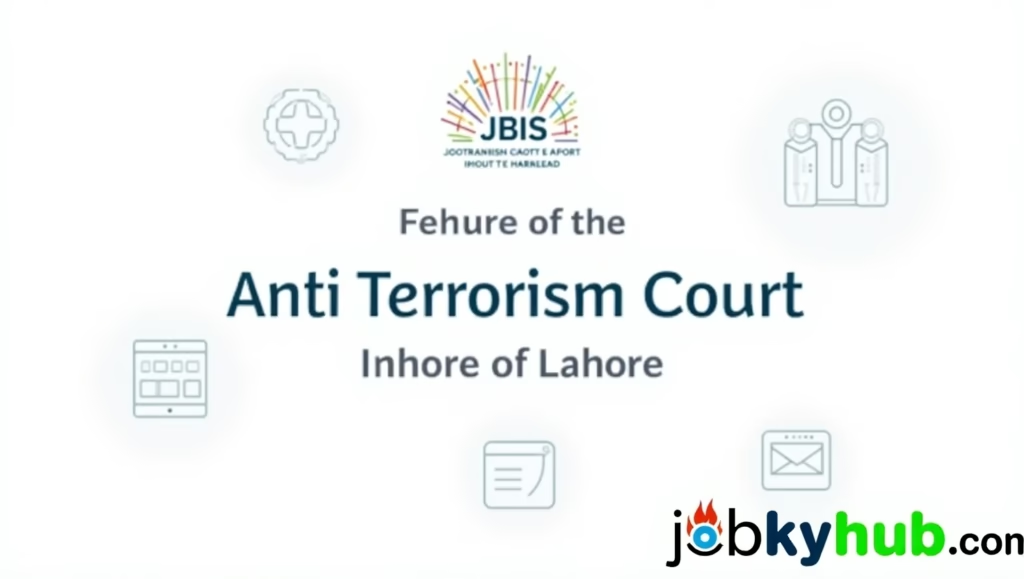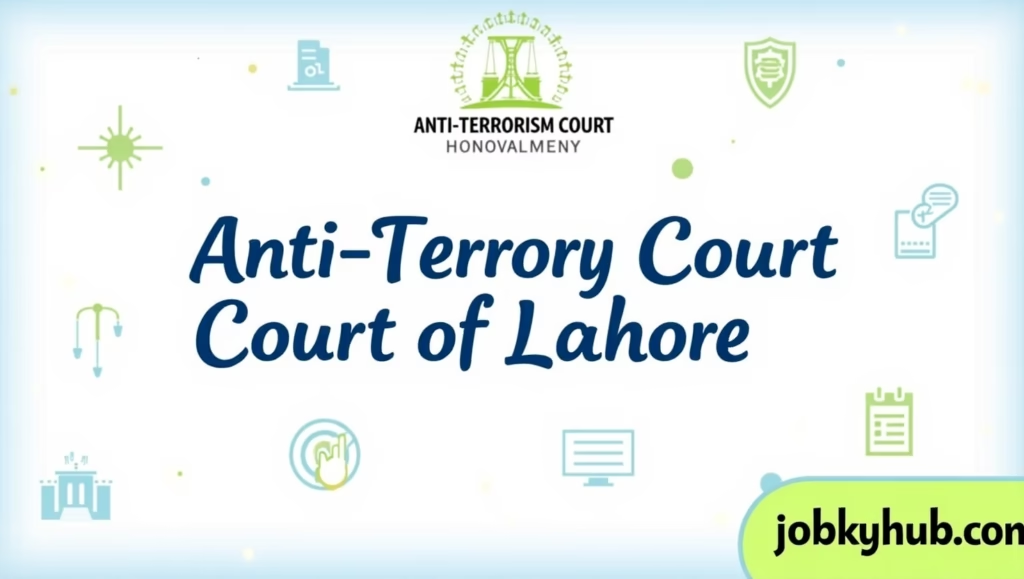
Overview of Anti-Terrorism Courts in Lahore
The Anti-Terrorism Courts in Lahore serve a pivotal function within the judicial system of Pakistan, particularly in the context of combating terrorism and ensuring national security. Established in response to the escalating threat of terrorism in the late 1990s, these specialized courts aim to provide a swift and efficient legal process for handling terrorism-related offenses. Their creation was a legislative effort to address the unique challenges posed by such crimes, which often require immediate and decisive judicial action to prevent further violence and maintain public safety.
One of the core purposes of the Anti-Terrorism Courts is to expedite the trial process for cases involving terrorism, which have specific legal and procedural requirements differing from ordinary criminal cases. This expedited process is essential, as it enables the courts to address cases that significantly impact societal stability. The operational framework of these courts includes judges who are specially trained in terrorism laws, ensuring they are well-equipped to interpret and apply relevant statutes effectively.
The significance of the Anti-Terrorism Courts extends beyond their immediate legal functions; they play a crucial role in reinforcing law and order in Pakistan. By delivering justice in cases of terrorism, these courts aim to serve as a deterrent against potential perpetrators while also instilling confidence within the citizenry regarding the state’s commitment to upholding the rule of law. Over the years, the courts have handled a variety of cases ranging from financing terrorism to acts of violence, thereby adapting their approaches to the evolving nature of terrorism.

Job Requirements for Positions in the Anti-Terrorism Court
The Anti-Terrorism Court of Lahore is dedicated to ensuring justice and upholding the law within the context of tackling terrorism-related offenses. As such, candidates seeking to apply for positions within this institution must meet specific job requirements. The qualifications, skills, and experience required may vary depending on the role an applicant is pursuing, with the intention of maintaining a professional standard in the court’s operations.
Potential applicants must possess a strong educational background, typically requiring a bachelor’s degree in law, criminal justice, or a related field. For higher positions, such as judges or senior legal advisors, advanced academic qualifications, including a Master’s degree or a PhD in relevant disciplines, are often necessary. The following table summarizes the key qualifications and attributes needed for various roles:
| Position | Qualifications | Skills | Experience |
|---|---|---|---|
| Judge | LL.B. or equivalent | Strong analytical skills, decision-making | 5+ years in legal practice |
| Prosecutor | LL.B. with specialization in criminal law | Persuasive communication, attention to detail | 3–5 years in public prosecution |
| Legal Advisor | Master’s in Law | Research abilities, strategic thinking | 2–4 years in relevant legal field |
In addition to educational qualifications, candidates must demonstrate a thorough understanding of anti-terrorism laws and practices. Familiarity with legal frameworks and procedures specific to terrorism cases is imperative. Certifications relevant to anti-terrorism and conflict resolution can further enhance an applicant’s profile. Additionally, interpersonal skills and the ability to work in high-pressure situations are critical for roles within the Anti-Terrorism Court.

Application Process and Tips for Success
Securing a position within the Anti-Terrorism Court of Lahore involves a systematic application process designed to identify qualified candidates who can contribute effectively to the judicial system. The first step for prospective applicants is to stay informed about job openings, which are typically announced through official government websites and major employment portals. Interested candidates should ensure they meet the eligibility criteria outlined in the job postings, including educational qualifications and relevant experience.
Once suitable positions are identified, applicants must prepare their documents for submission. Essential materials usually include a comprehensive resume, a cover letter, and copies of academic and professional certifications. It is advisable to tailor each application to align with the specific requirements of the job, highlighting relevant skills and experience that pertain to the anti-terrorism legal framework. Submitting applications electronically is common; therefore, ensuring that documents are in accepted formats, such as PDF, can facilitate a smooth processing experience.
Key deadlines play a significant role in the application process, as late submissions are typically not considered. Candidates should meticulously track these dates and create a schedule to avoid last-minute pressures. Preparing for interviews is another critical component of the application journey. Engaging in mock interviews and researching common questions can bolster confidence and articulation during the actual interview. Additionally, candidates should demonstrate knowledge of legal processes specific to anti-terrorism, which reflects both preparedness and enthusiasm for the role.

Future of Anti-Terrorism Court Careers in Pakistan
The landscape of careers within the Anti-Terrorism Courts in Pakistan is evolving in response to the growing challenges posed by terrorism. As the political and social dynamics of the country shift, there are notable trends indicating an increase in employment opportunities within this crucial judicial branch. The necessity for specialized legal expertise in handling terrorism-related cases underscores the potential for career advancement in this area.
The continuous threat of terrorism necessitates a robust legal framework capable of addressing these challenges effectively. Consequently, the government is likely to invest more in enhancing the capabilities of the Anti-Terrorism Courts. This investment may lead to a rise in job openings for legal professionals, including judges, prosecutors, and legal advisors who specialize in anti-terrorism law. Moreover, opportunities for support roles such as legal researchers and administrative staff may also grow as courts seek to enhance their operational efficiencies.
Furthermore, the collaboration between local authorities and international organizations to combat terrorism may lead to an influx of funding and resources dedicated to this sector. Such collaboration not only bolsters the judicial process but also increases the demand for skilled practitioners in the legal arena. This environment offers a promising outlook for law graduates and seasoned professionals alike who wish to contribute to national security through their careers.




